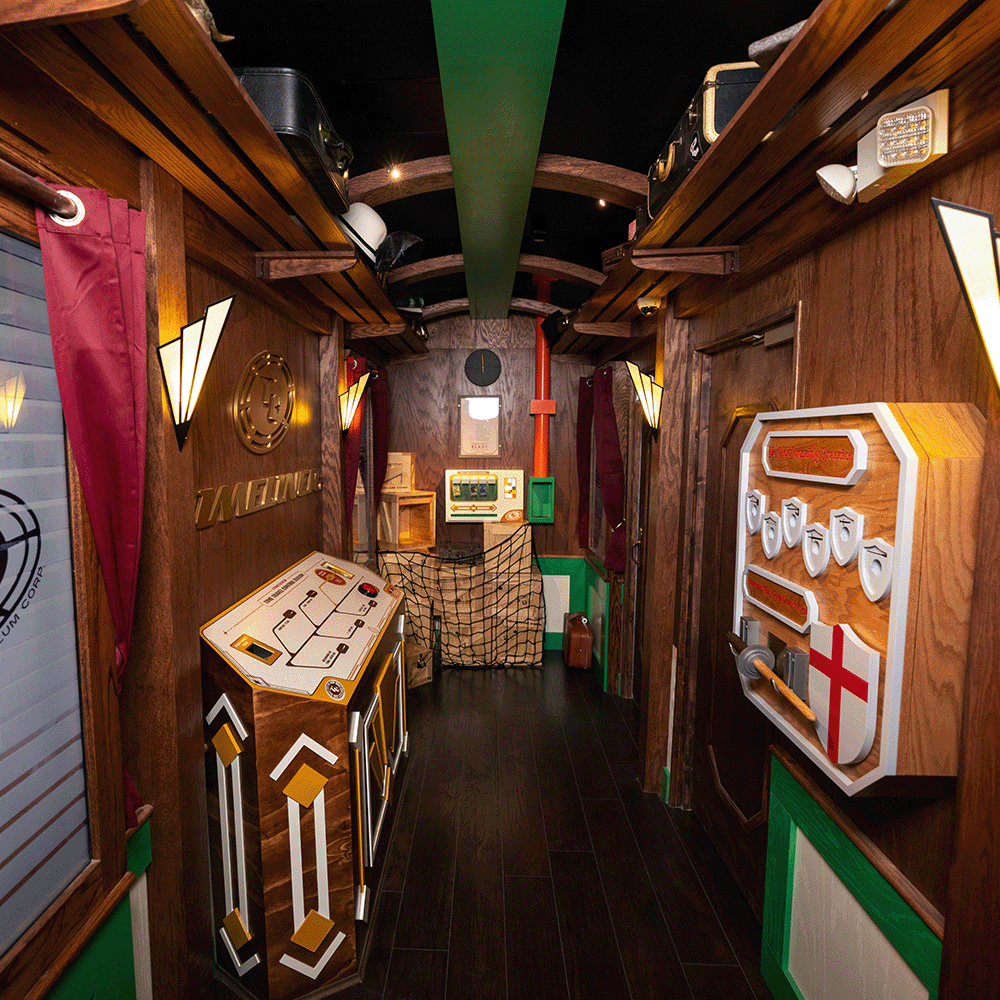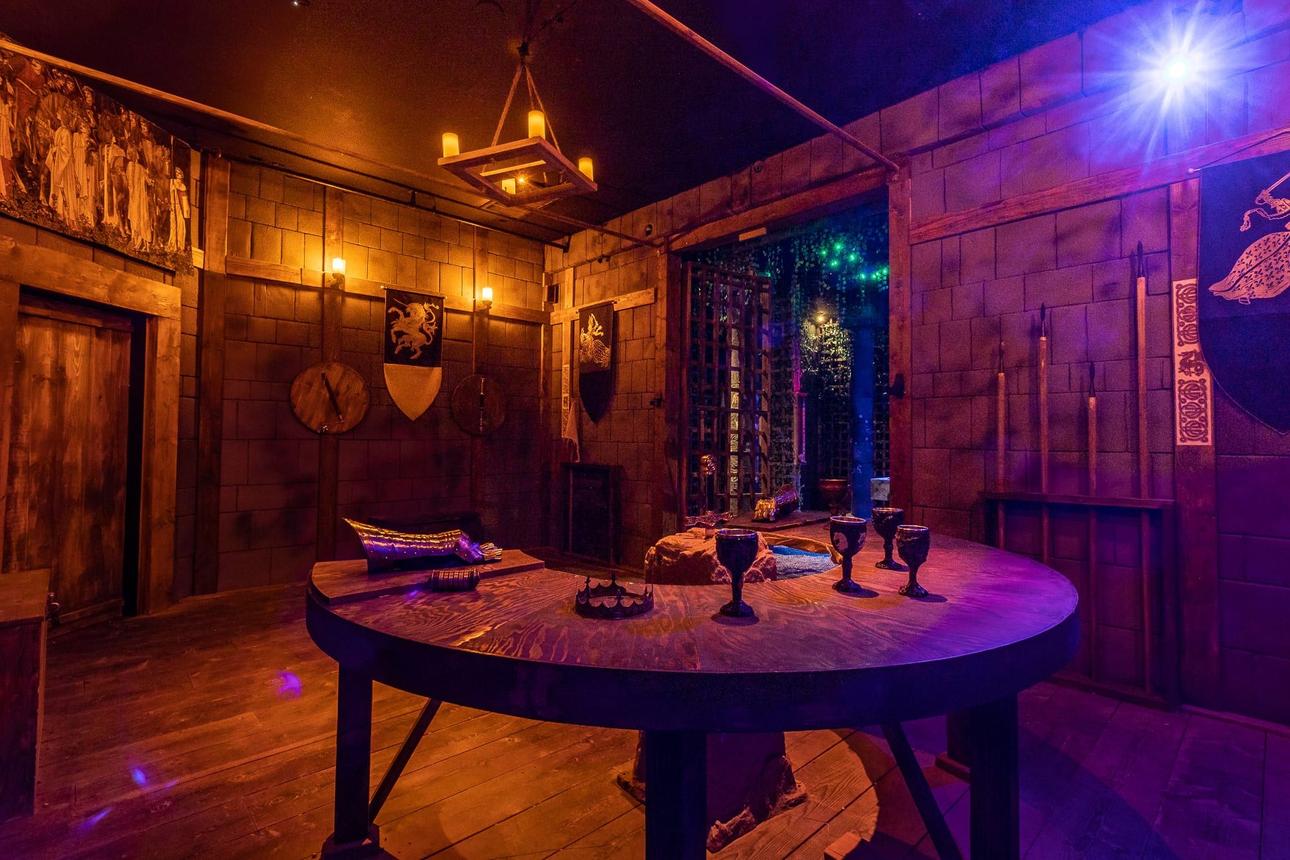Team Approaches: Just How to Team up Efficiently in an Escape Room
Teams should proactively pay attention to each member's insights, appoint duties that align with individual toughness, and preserve regular check-ins to ensure focus and stop redundancy. By promoting an environment that values communication and adaptability, teams can significantly enhance their efficiency and success prices.
Establish Clear Communication

To facilitate clear interaction, it is important to mark a central point of get in touch with for details dissemination. This duty entails summing up findings and recommended strategies to ensure every person remains on the very same web page. Furthermore, taking on a methodical approach to discussions can stop disorderly exchanges. For example, brief, concentrated updates from each staff member can maintain the team notified without frustrating them with information.

Appoint Roles Strategically
While clear interaction sets the foundation for reliable team effort, appointing functions tactically guarantees that each staff member's toughness are utilized effectively. In a getaway room situation, the time-sensitive and complex nature of difficulties demands a well-organized strategy to job delegation. By recognizing and leveraging private expertises, teams can optimize their problem-solving abilities and enhance overall performance.
A person with a keen eye for information could excel in finding hidden things, while a sensible thinker can be much better suited to addressing problems. This duty often needs solid business and social abilities.
Second, make certain that duties are adaptable and versatile. As brand-new challenges arise, the group has to have the ability to pivot, reallocating tasks as required. This adaptability aids maintain energy and protects against traffic jams that might take place as a result of stiff role projects.
Inevitably, a critical technique to role project not just makes the most of the staminas of each team member but likewise fosters a natural setting, driving the team in the direction of an effective escape.
Utilize Diverse Skills
Identifying and utilizing here the varied skills within your team can significantly boost your performance in a retreat room. Each group member brings one-of-a-kind strengths to the table, and effectively leveraging these abilities can expedite analytical and enhance general performance. As an example, an employee with solid logical skills may succeed at analyzing intricate codes or patterns, while one more with eager empirical abilities might quickly find surprise clues that others could overlook.
Urge team participants to articulate their insights and ideas immediately, ensuring that all potential solutions are taken into consideration. In addition, designating tasks that align with each participant's toughness can avoid traffic jams and make sure that development is constant.
In addition, diversity in abilities usually converts to variety in thinking designs, which is indispensable in a getaway room setting. While some obstacles may call for logical thinking and accuracy, others might gain from creative and lateral reasoning. By acknowledging and leveraging this variety, teams can address a broader variety of difficulties better, thereby enhancing their possibilities of a successful retreat.
Manage Time Efficiently

First, allocate first mins for a quick survey of the area. Recognize noticeable problems and separate jobs based on employee' staminas, guaranteeing that nobody is still. Set inner time checkpoints to review progression occasionally; for example, objective to have half the puzzles solved by the mid-point of the video game. This technique can aid keep the team concentrated and stop time from sliding away undetected.
In addition, prevent passage vision. If a challenge is taking as well long, revolve employee or carry on to an additional obstacle, returning later with fresh viewpoints. Interaction is critical-- maintain every person updated on addressed challenges and staying jobs to avoid redundant initiatives.
Finally, use any kind of hints or ideas sparingly yet purposefully - best escape room. Understanding when to request for assistance can save important time. By sticking to these time management concepts, groups can substantially enhance their opportunities of a successful and delightful escape area experience
Debrief and Mirror
Reflection is a necessary facet of group advancement and renovation in the context of getaway rooms. When the obstacle is completed, whether effectively or not, it is vital for the team to engage in an organized debriefing check this session. This process permits staff member to evaluate their performance, identify strengths, and identify locations for renovation.
Start the debrief by reviewing what worked out. Highlight details instances of effective interaction, problem-solving, and collaboration. Acknowledging these positive actions strengthens them and motivates their rep in future obstacles.
Go over minutes of complication, miscommunication, or inadequate approaches. Urge an open and positive discussion where group participants can share their point of views without concern of criticism.
Conclusion
Finally, successful collaboration in an escape area is based upon clear interaction, critical function projects, the effective utilization of diverse abilities, and competent time management. Normal check-ins and structured debriefings are vital for maintaining emphasis and promoting continuous renovation. By producing a cohesive and flexible team atmosphere, the probability of effectively solving problems and achieving the objective of leaving the room is dramatically improved. This approach not only guarantees success yet likewise advertises cumulative growth and learning.